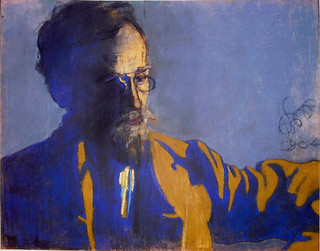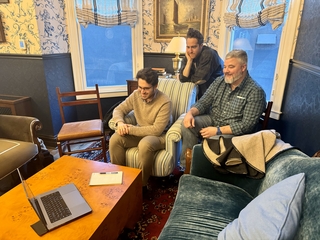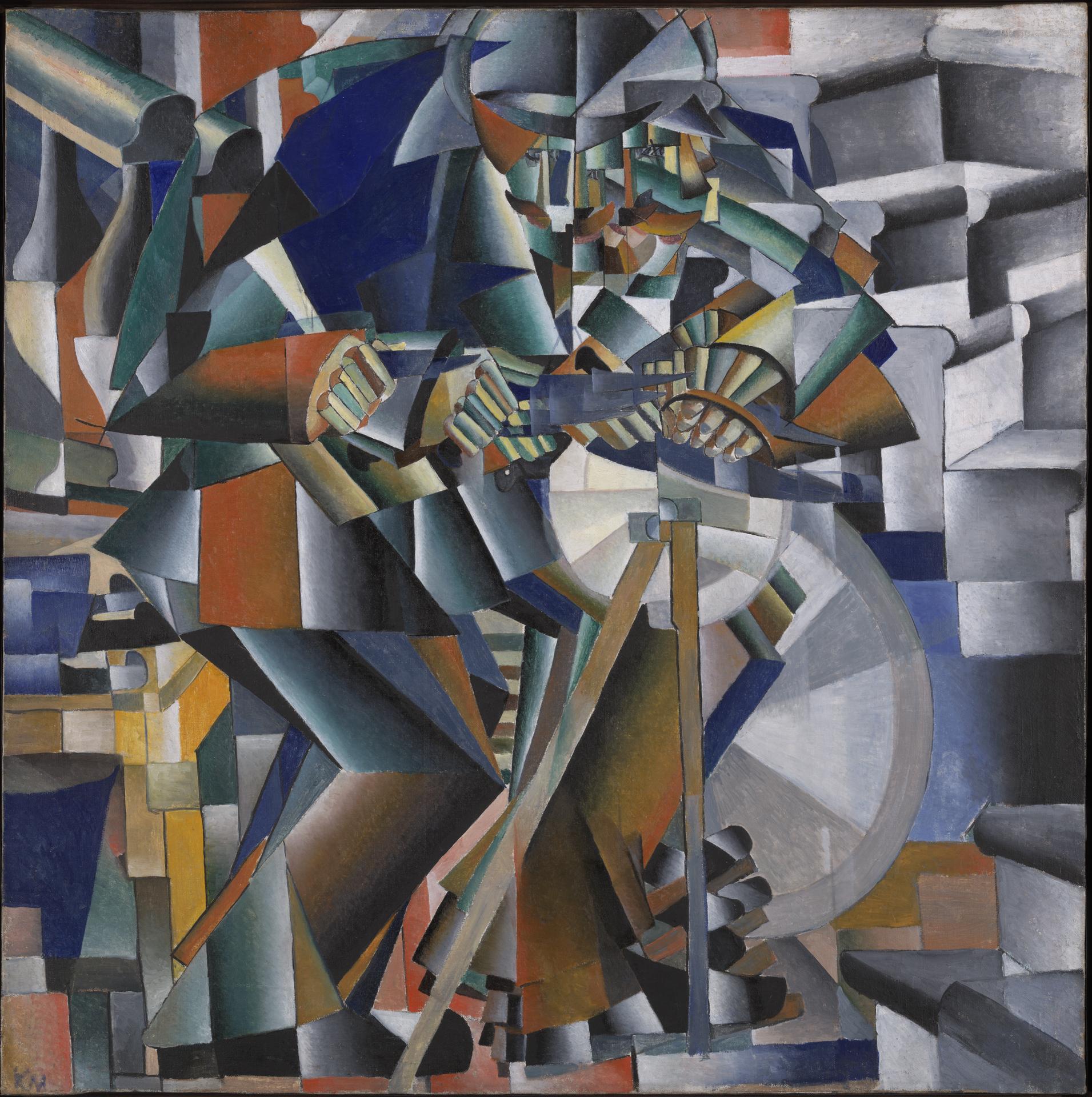Our program values interdisciplinary and comparative perspectives on Russian, East European, and Eurasian literatures and cultures. While maintaining a foundation in the study and teaching of language and literature, the department sees both as embedded in a global context and a broad network of cultural production. Students are encouraged to develop their primary fields of study as well as meaningful connections with other disciplines, including comparative literature, history of art, film and media studies, history and the social sciences, gender and sexuality studies, the environmental humanities, and the digital humanities.
Ph.D. Roadmap and Requirements
This is a general timeline of progression through the program. For more detailed information see the Graduate Handbook
Language Competency and Expectations
All entering students are expected to have sufficient knowledge of Russian to allow for satisfactory work at the graduate level and are required to pass a departmental proficiency examination in Russian. If needed, students are expected to augment their language proficiency with summer study, undergraduate classes, or individualized tutorials.
Students must also demonstrate competence in a second foreign language, as soon as possible or by the beginning of the fifth term of study. Students may choose to pursue proficiency in a second Slavic language; in a language useful for broader access to scholarship (often German or French in past years); in another relevant Eastern European or Eurasian language; or in any language relevant for well-motivated comparative work.
Coursework
All graduate students are required to take sixteen courses in their first two years of graduate study. Students are strongly encouraged to take ownership over their individualized programs of study and to explore diverse options both within and outside the Slavic Department.
All graduate students pursuing the Ph.D. in Russian Literature and Culture must take “Proseminar: Theory and Methods” (RUSS 851). In addition to this one mandatory course, all students must fulfill the following distributional requirements through graduate-level coursework:
Minimum of one course on Slavic literature or culture before the eighteenth century
Minimum of one course on eighteenth-century Slavic literature or culture
Minimum of two courses on nineteenth-century Slavic literature or culture
Minimum of two courses on twentieth-century Slavic literature or culture
Minimum of one course on twenty-first-century Slavic literature or culture
Minimum of two (but no more than four out of the required sixteen) courses outside the Slavic Department.
Teaching Fellowships
Since the faculty consider teaching to be an integral part of graduate training, all graduate students are expected to teach for a total of four semesters (typically in the third and fourth years of study). Students are usually assigned two semesters of language teaching, during which time they are mentored and trained by a lead language lector, and two semesters of literature/culture teaching, for which they either run discussion sections for large-enrollment lecture courses, or serve as instructor-apprentices in small undergraduate seminars.
Qualifying Paper
Students must submit a qualifying paper no later than September 1st of their third year. The paper, which in many cases will be a revised version of a seminar paper, should be developed in consultation with a faculty adviser. The paper should highlight original research and an ambitious conceptualization, possess a logical structure, and be clearly written.
The Comprehensive Examination and the Departmental Reading List
In early October of their third year, students will take a comprehensive examination on Russian literature and culture from the nineteenth century to the present. The comprehensive is split into two 6-hour take-home exams. This exam is meant to test the students’ knowledge of the broad scope of Russian literature and culture, as well as their ability to analyze various kinds of cultural products and position specific works within their historical, cultural, and critical contexts.
Students should use the departmental reading list
as a guide in preparing for this exam, but they are also welcome to draw from beyond the list in their answers. The reading list, which is periodically revised with faculty and student input, serves as the foundation for well-rounded erudition in Russian literature. Students are expected to build on it based on their academic interests and research needs. We do not include other media or literary traditions in the reading list, and instead encourage students with serious interests (in film or in Polish literature, for example) to develop rigorous independent lists in consultation with specializing faculty. We provide opportunities to do so through minor field requirements and specialized qualifying exam reading lists.
The Qualifying Examination
In early December of their third year, students will take a qualifying examination based on two specialized reading lists. This exam is a one-hour oral exam with twenty-five minutes allotted to each list. The exam is meant to test the student’s knowledge of two specific areas of study, which often serve as important preparation for the development of a dissertation topic. For example, a student planning to write a dissertation on the nineteenth-century Russian realist novel might create a specialized list on the French and English realist novels or realism in music; or a student planning to write on post-Soviet drama might create a list on theories of performance in Russia and elsewhere.
The Pre-Prospectus Colloquium
In early February, after the successful completion of the comprehensive and qualifying examinations, students will present a preliminary version of their dissertation prospectus to a colloquium attended by all Slavic ladder faculty.
The Prospectus Presentation
In early April, students will present the final version of their dissertation prospectus to all students and faculty in the department. The prospectus presentation will take one hour, beginning with a ten-minute introduction by the student and followed by forty-five minutes of questions and suggestions from everyone in attendance. The point of including all faculty and students is to provide the student with as much feedback as possible, to give rising students a sense of what awaits them, and to foster collegiality in the department by making everyone aware of what others are working on.
Admission to Candidacy and the M.Phil. Degree
To be admitted to candidacy, students must fulfill all of the graduate school and department pre-dissertation requirements described above and must be in good academic standing with the department.
Students may petition the Graduate School to receive an en route M.Phil. degree. This can be done in the semester the student expects to complete all pre-dissertation requirements.
The Dissertation
The dissertation is the culmination of the student’s work in the doctoral program and an important emblem of professional competence, intellectual rigor, and academic potential. As such, it should demonstrate mastery of a defined field of research and should articulate an original and substantive contribution to knowledge. While all dissertations should have clearly defined empirical and theoretical stakes and be grounded in appropriate methodological choices, each project will approach its central questions in necessarily distinct ways: some based more heavily in archival research, others shaped more profoundly by theoretical discussions, and still others determined by entirely different disciplinary or interdisciplinary demands. While working on their dissertation, students should remain attuned to questions of writerly craft and should strive for clarity and liveliness of their academic prose.
The First Chapter Talk
During the spring semester of the fourth year, students will deliver a forty-five-minute talk on their first chapter to the entire Slavic Department. This event is intended to serve not only as an early dissertation benchmark, but also as an opportunity for students to gain essential experience writing and delivering a long lecture.
Advising
Before admission to candidacy, the primary academic adviser for each graduate student is the Director of Graduate Studies. However, students are encouraged to seek out one or more mentors to consult about course selection and other matters of professionalization. Mentors from outside the department may contribute through the minor field requirement or by participating in the prospectus process. After being admitted to candidacy, the chair of the dissertation committee will serve as the student’s primary adviser in intellectual and professional matters.

Courses
Proseminar in Slavic Literature RUSS 851 (Various Faculty)
Aspects of Russian Grammar and Teaching Methodology RUSS 834 (Olha Tytarenko)
Eighteenth-Century Russian Literature RUSS 608 (Jinyi Chu)
Russian Realist Literature and Painting RUSS 603 / HSAR 605 (Molly Brunson)
Dostoevsky, Tolstoy, and Theories of the Novel RUSS 644 (Molly Brunson)
The Russian Nineteenth Century, Remediated and Reimagined RUSS 648 / CPLT 662 (Edyta Bojanowska)
Chekhov RUSS 651 (Edyta Bojanowska)
Russian Style: Material Culture and the Decorative Arts in Imperial Russia RUSS 655 / HSAR 535 (Molly Brunson)
Space and Place in Modern Theory and Fiction RUSS 680 (Edyta Bojanowska)
Russian Romantic Poetry RUSS 681 (Marijeta Bozovic and Jinyi Chu)
The Russian Fin-de-siècle RUSS 692 (Jinyi Chu)
Socialist Realism And Its Legacies RUSS 606 / RUSS 401 / RSEE 606 / RSEE 401 (Claire Roosien)
Memory and Memoir in Russian Culture RUSS 609 / CPLT 549 (Jinyi Chu)
Eurasian Ecomedia RSEE 610 / SLAV 610 / E&RS 619 (Claire Roosien)
The Soviet City RUSS 672 / HIST 675 (Claire Roosien)
Russian Avant-Garde Poetry RUSS 682 (Marijeta Bozovic)
Russian Symbolist Poetry RUSS 689 (Marijeta Bozovic and Jinyi Chu)
The Russian Fin-de-siècle RUSS 692 (Jinyi Chu)
Avant-Gardes and Émigrés RUSS 690 / RUSS 384 (Marijeta Bozovic)
Russian and Soviet Film RUSS 714 / FILM 630 (John MacKay)
Documentary, Fiction, Docufiction RUSS 715 / FILM 351 / SLAV 351 / RUSS 338 / FILM 629 (John MacKay)
Yugoslav Film SLAV 745 (Marijeta Bozovic)
Memory and Memoir in Russian Culture RUSS 609 / CPLT 549 (Jinyi Chu)
Eurasian Ecomedia RSEE 610 / SLAV 610 / E&RS 619 (Claire Roosien)
Second Sex after the Second World RUSS 653 (Marijeta Bozovic and Nari Shelekpayev)
Avant-Gardes and Émigrés RUSS 690 / RUSS 384 (Marijeta Bozovic)
Russian and Soviet Film RUSS 714 / FILM 630 (John MacKay)
Documentary, Fiction, Docufiction RUSS 715 / FILM 351 / SLAV 351 / RUSS 338 / FILM 629 (John MacKay)
Yugoslav Film SLAV 745 (Marijeta Bozovic)
Resources
Professional Development
We support all of our students who hope to follow a traditional or non-traditional paths. Advisers may doan intensive review of application materials, mock interviews with faculty, mock job talks with the whole department, and assistance in negotiating offers. Former advisers and advisees are encouraged to remain in contact after graduation, so that the department can support alumni who are moving through postdoctoral fellowships or visiting positions, navigating a switch from one kind of employment to another, or in search of a permanent or more favorable position.

Graduate Contacts
-
Marijeta Bozovic
Professor of Slavic Languages and Literatures -
Dan Rehberg
Registrar
